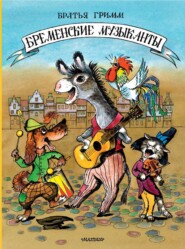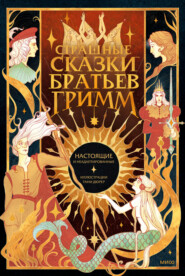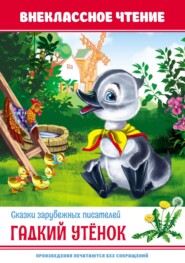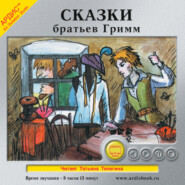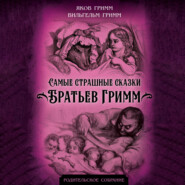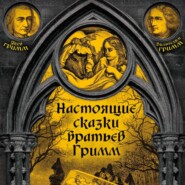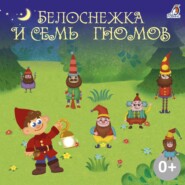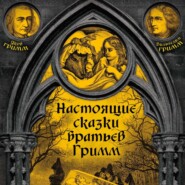По всем вопросам обращайтесь на: info@litportal.ru
(©) 2003-2024.
✖
Household Tales by Brothers Grimm
Настройки чтения
Размер шрифта
Высота строк
Поля
She did so, and when it was night the others came from hunting, and their dinner was ready. And as they were sitting at table, and eating, they asked, "What news is there?" Said Benjamin, "Don't you know anything?" "No," they answered. He continued, "You have been in the forest and I have stayed at home, and yet I know more than you do." "Tell us then," they cried. He answered, "But promise me that the first maiden who meets us shall not be killed." "Yes," they all cried, "she shall have mercy, only do tell us."
Then said he, "Our sister is here," and he lifted up the tub, and the King's daughter came forth in her royal garments with the golden star on her forehead, and she was beautiful, delicate and fair. Then they were all rejoiced, and fell on her neck, and kissed and loved her with all their hearts.
Now she stayed at home with Benjamin and helped him with the work. The eleven went into the forest and caught game, and deer, and birds, and wood-pigeons that they might have food, and the little sister and Benjamin took care to make it ready for them. She sought for the wood for cooking and herbs for vegetables, and put the pans on the fire so that the dinner was always ready when the eleven came. She likewise kept order in the little house, and put beautifully white clean coverings on the little beds, and the brothers were always contented and lived in great harmony with her.
Once on a time the two at home had prepared a beautiful entertainment, and when they were all together, they sat down and ate and drank and were full of gladness. There was, however, a little garden belonging to the bewitched house wherein stood twelve lily flowers, which are likewise called students. She wished to give her brothers pleasure, and plucked the twelve flowers, and thought she would present each brother with one while at dinner. But at the self-same moment that she plucked the flowers the twelve brothers were changed into twelve ravens, and flew away over the forest, and the house and garden vanished likewise. And now the poor maiden was alone in the wild forest, and when she looked around, an old woman was standing near her who said, "My child, what hast thou done? Why didst thou not leave the twelve white flowers growing? They were thy brothers, who are now for evermore changed into ravens." The maiden said, weeping, "Is there no way of delivering them?"
"No," said the woman, "there is but one in the whole world, and that is so hard that thou wilt not deliver them by it, for thou must be dumb for seven years, and mayst not speak or laugh, and if thou speakest one single word, and only an hour of the seven years is wanting, all is in vain, and thy brothers will be killed by the one word."
Then said the maiden in her heart, "I know with certainty that I shall set my brothers free," and went and sought a high tree and seated herself in it and span, and neither spoke nor laughed. Now it so happened that a king was hunting in the forest, who had a great greyhound which ran to the tree on which the maiden was sitting, and sprang about it, whining, and barking at her. Then the King came by and saw the beautiful King's daughter with the golden star on her brow, and was so charmed with her beauty that he called to ask her if she would be his wife. She made no answer, but nodded a little with her head. So he climbed up the tree himself, carried her down, placed her on his horse, and bore her home. Then the wedding was solemnized with great magnificence and rejoicing, but the bride neither spoke nor smiled. When they had lived happily together for a few years, the King's mother, who was a wicked woman, began to slander the young Queen, and said to the King, "This is a common beggar girl whom thou hast brought back with thee. Who knows what impious tricks she practises secretly! Even if she be dumb, and not able to speak, she still might laugh for once; but those who do not laugh have bad consciences." At first the King would not believe it, but the old woman urged this so long, and accused her of so many evil things, that at last the King let himself be persuaded and sentenced her to death.
And now a great fire was lighted in the courtyard in which she was to be burnt, and the King stood above at the window and looked on with tearful eyes, because he still loved her so much. And when she was bound fast to the stake, and the fire was licking at her clothes with its red tongue, the last instant of the seven years expired. Then a whirring sound was heard in the air, and twelve ravens came flying towards the place, and sank downwards, and when they touched the earth they were her twelve brothers, whom she had delivered. They tore the fire asunder, extinguished the flames, set their dear sister free, and kissed and embraced her. And now as she dared to open her mouth and speak, she told the King why she had been dumb, and had never laughed. The King rejoiced when he heard that she was innocent, and they all lived in great unity until their death. The wicked step-mother was taken before the judge, and put into a barrel filled with boiling oil and venomous snakes, and died an evil death.
10 The Pack of Ragamuffins
The cock once said to the hen, "It is now the time when our nuts are ripe, so let us go to the hill together and for once eat our fill before the squirrel takes them all away." "Yes," replied the hen, "come, we will have some pleasure together." Then they went away to the hill, and on it was a bright day they stayed till evening. Now I do not know whether it was that they had eaten till they were too fat, or whether they had become proud, but they would not go home on foot, and the cock had to build a little carriage of nut-shells. When it was ready, the little hen seated herself in it and said to the cock, "Thou canst just harness thyself to it." "I like that!" said the cock, "I would rather go home on foot than let myself be harnessed to it; no, that is not our bargain. I do not mind being coachman and sitting on the box, but drag it myself I will not."
As they were thus disputing, a duck quacked to them, "You thieving folks, who bade you go to my nut-hill? Well, you shall suffer for it!" and ran with open beak at the cock. But the cock also was not idle, and fell boldly on the duck, and at last wounded her so with his spurs that she also begged for mercy, and willingly let herself be harnessed to the carriage as a punishment. The little cock now seated himself on the box and was coachman, and thereupon they went off in a gallop, with "Duck, go as fast as thou canst." When they had driven a part of the way they met two foot-passengers, a pin and a needle. They cried, "Stop! stop!" and said that it would soon be as dark as pitch, and then they could not go a step further, and that it was so dirty on the road, and asked if they could not get into the carriage for a while. They had been at the tailor's public-house by the gate, and had stayed too long over the beer. As they were thin people, who did not take up much room, the cock let them both get in, but they had to promise him and his little hen not to step on their feet. Late in the evening they came to an inn, and as they did not like to go further by night, and as the duck also was not strong on her feet, and fell from one side to the other, they went in. The host at first made many objections, his house was already full, besides he thought they could not be very distinguished persons; but at last, as they made pleasant speeches, and told him that he should have the egg which the little hen has laid on the way, and should likewise keep the duck, which laid one every day, he at length said that they might stay the night. And now they had themselves well served, and feasted and rioted. Early in the morning, when day was breaking, and every one was asleep, the cock awoke the hen, brought the egg, pecked it open, and they ate it together, but they threw the shell on the hearth. Then they went to the needle which was still asleep, took it by the head and stuck it into the cushion of the landlord's chair, and put the pin in his towel, and at the last without more ado they flew away over the heath. The duck who liked to sleep in the open air and had stayed in the yard, heard them going away, made herself merry and found a stream, down which she swam, which was a much quicker way of travelling than being harnessed to a carriage. The host did not get out of bed for two hours after this; he washed himself and wanted to dry himself, then the pin went over his face and made a red streak from one ear to the other. After this he went into the kitchen and wanted to light a pipe, but when he came to the hearth the egg-shell darted into his eyes. "This morning everything attacks my head," said he, and angrily sat down on his grandfather's chair, but he quickly started up again and cried, "Woe is me," for the needle had pricked him still worse than the pin, and not in the head. Now he was thoroughly angry, and suspected the guests who had come so late the night before, and when he went and looked about for them, they were gone. Then he made a vow to take no more ragamuffins into his house, for they consume much, pay for nothing, and play mischievous tricks into the bargain by way of gratitude.
11 Little Brother and Little Sister
Little brother took his little sister by the hand and said, "Since our mother died we have had no happiness; our step-mother beats us every day, and if we come near her she kicks us away with her foot. Our meals are the hard crusts of bread that are left over; and the little dog under the table is better off, for she often throws it a nice bit. May Heaven pity us. If our mother only knew! Come, we will go forth together into the wide world."
They walked the whole day over meadows, fields, and stony places; and when it rained the little sister said, "Heaven and our hearts are weeping together." In the evening they came to a large forest, and they were so weary with sorrow and hunger and the long walk, that they lay down in a hollow tree and fell asleep.
The next day when they awoke, the sun was already high in the sky, and shone down hot into the tree. Then the brother said, "Sister, I am thirsty; if I knew of a little brook I would go and just take a drink; I think I hear one running." The brother got up and took the little sister by the hand, and they set off to find the brook.
But the wicked step-mother was a witch, and had seen how the two children had gone away, and had crept after them privily, as witches do creep, and had bewitched all the brooks in the forest.
Now when they found a little brook leaping brightly over the stones, the brother was going to drink out of it, but the sister heard how it said as it ran, "Who drinks of me will be a tiger; who drinks of me will be a tiger." Then the sister cried, "Pray, dear brother, do not drink, or you will become a wild beast, and tear me to pieces." The brother did not drink, although he was so thirsty, but said, "I will wait for the next spring."
When they came to the next brook the sister heard this also say, "Who drinks of me will be a wolf; who drinks of me will be a wolf." Then the sister cried out, "Pray, dear brother, do not drink, or you will become a wolf, and devour me." The brother did not drink, and said, "I will wait until we come to the next spring, but then I must drink, say what you like; for my thirst is too great."
And when they came to the third brook the sister heard how it said as it ran, "Who drinks of me will be a roebuck; who drinks of me will be a roebuck." The sister said, "Oh, I pray you, dear brother, do not drink, or you will become a roebuck, and run away from me." But the brother had knelt down at once by the brook, and had bent down and drunk some of the water, and as soon as the first drops touched his lips he lay there a young roebuck.
And now the sister wept over her poor bewitched brother, and the little roe wept also, and sat sorrowfully near to her. But at last the girl said, "Be quiet, dear little roe, I will never, never leave you."
Then she untied her golden garter and put it round the roebuck's neck, and she plucked rushes and wove them into a soft cord. With this she tied the little beast and led it on, and she walked deeper and deeper into the forest.
And when they had gone a very long way they came at last to a little house, and the girl looked in; and as it was empty, she thought, "We can stay here and live." Then she sought for leaves and moss to make a soft bed for the roe; and every morning she went out and gathered roots and berries and nuts for herself, and brought tender grass for the roe, who ate out of her hand, and was content and played round about her. In the evening, when the sister was tired, and had said her prayer, she laid her head upon the roebuck's back: that was her pillow, and she slept softly on it. And if only the brother had had his human form it would have been a delightful life.
For some time they were alone like this in the wilderness. But it happened that the King of the country held a great hunt in the forest. Then the blasts of the horns, the barking of dogs, and the merry shouts of the huntsmen rang through the trees, and the roebuck heard all, and was only too anxious to be there. "Oh," said he, to his sister, "let me be off to the hunt, I cannot bear it any longer;" and he begged so much that at last she agreed. "But," said she to him, "come back to me in the evening; I must shut my door for fear of the rough huntsmen, so knock and say, 'My little sister, let me in!' that I may know you; and if you do not say that, I shall not open the door." Then the young roebuck sprang away; so happy was he and so merry in the open air.
The King and the huntsmen saw the pretty creature, and started after him, but they could not catch him, and when they thought that they surely had him, away he sprang through the bushes and could not be seen. When it was dark he ran to the cottage, knocked, and said, "My little sister, let me in." Then the door was opened for him, and he jumped in, and rested himself the whole night through upon his soft bed.
The next day the hunt went on afresh, and when the roebuck again heard the bugle-horn, and the ho! ho! of the huntsmen, he had no peace, but said, "Sister, let me out, I must be off." His sister opened the door for him, and said, "But you must be here again in the evening and say your pass-word."
When the King and his huntsmen again saw the young roebuck with the golden collar, they all chased him, but he was too quick and nimble for them. This went on for the whole day, but at last by the evening the huntsmen had surrounded him, and one of them wounded him a little in the foot, so that he limped and ran slowly. Then a hunter crept after him to the cottage and heard how he said, "My little sister, let me in," and saw that the door was opened for him, and was shut again at once. The huntsman took notice of it all, and went to the King and told him what he had seen and heard. Then the King said, "To-morrow we will hunt once more."
The little sister, however, was dreadfully frightened when she saw that her fawn was hurt. She washed the blood off him, laid herbs on the wound, and said, "Go to your bed, dear roe, that you may get well again." But the wound was so slight that the roebuck, next morning, did not feel it any more. And when he again heard the sport outside, he said, "I cannot bear it, I must be there; they shall not find it so easy to catch me." The sister cried, and said, "This time they will kill you, and here am I alone in the forest and forsaken by all the world. I will not let you out." "Then you will have me die of grief," answered the roe; "when I hear the bugle-horns I feel as if I must jump out of my skin." Then the sister could not do otherwise, but opened the door for him with a heavy heart, and the roebuck, full of health and joy, bounded into the forest.
When the King saw him, he said to his huntsmen, "Now chase him all day long till night-fall, but take care that no one does him any harm."
As soon as the sun had set, the King said to the huntsman, "Now come and show me the cottage in the wood;" and when he was at the door, he knocked and called out, "Dear little sister, let me in." Then the door opened, and the King walked in, and there stood a maiden more lovely than any he had ever seen. The maiden was frightened when she saw, not her little roe, but a man come in who wore a golden crown upon his head. But the King looked kindly at her, stretched out his hand, and said, "Will you go with me to my palace and be my dear wife?" "Yes, indeed," answered the maiden, "but the little roe must go with me, I cannot leave him." The King said, "It shall stay with you as long as you live, and shall want nothing." Just then he came running in, and the sister again tied him with the cord of rushes, took it in her own hand, and went away with the King from the cottage.
The King took the lovely maiden upon his horse and carried her to his palace, where the wedding was held with great pomp. She was now the Queen, and they lived for a long time happily together; the roebuck was tended and cherished, and ran about in the palace-garden.
But the wicked step-mother, because of whom the children had gone out into the world, thought all the time that the sister had been torn to pieces by the wild beasts in the wood, and that the brother had been shot for a roebuck by the huntsmen. Now when she heard that they were so happy, and so well off, envy and hatred rose in her heart and left her no peace, and she thought of nothing but how she could bring them again to misfortune. Her own daughter, who was ugly as night, and had only one eye, grumbled at her and said, "A Queen! that ought to have been my luck." "Only be quiet," answered the old woman, and comforted her by saying, "when the time comes I shall be ready."
As time went on, the Queen had a pretty little boy, and it happened that the King was out hunting; so the old witch took the form of the chamber-maid, went into the room where the Queen lay, and said to her, "Come, the bath is ready; it will do you good, and give you fresh strength; make haste before it gets cold."
The daughter also was close by; so they carried the weakly Queen into the bath-room, and put her into the bath; then they shut the door and ran away. But in the bath-room they had made a fire of such deadly heat that the beautiful young Queen was soon suffocated.
When this was done the old woman took her daughter, put a nightcap on her head, and laid her in bed in place of the Queen. She gave her too the shape and the look of the Queen, only she could not make good the lost eye. But in order that the King might not see it, she was to lie on the side on which she had no eye.
In the evening when he came home and heard that he had a son he was heartily glad, and was going to the bed of his dear wife to see how she was. But the old woman quickly called out, "For your life leave the curtains closed; the Queen ought not to see the light yet, and must have rest." The King went away, and did not find out that a false Queen was lying in the bed.
But at midnight, when all slept, the nurse, who was sitting in the nursery by the cradle, and who was the only person awake, saw the door open and the true Queen walk in. She took the child out of the cradle, laid it on her arm, and suckled it. Then she shook up its pillow, laid the child down again, and covered it with the little quilt. And she did not forget the roebuck, but went into the corner where it lay, and stroked its back. Then she went quite silently out of the door again. The next morning the nurse asked the guards whether anyone had come into the palace during the night, but they answered, "No, we have seen no one."
She came thus many nights and never spoke a word: the nurse always saw her, but she did not dare to tell anyone about it.
When some time had passed in this manner, the Queen began to speak in the night, and said —
"How fares my child, how fares my roe?
Twice shall I come, then never more."
The nurse did not answer, but when the Queen had gone again, went to the King and told him all. The King said, "Ah, heavens! what is this? To-morrow night I will watch by the child." In the evening he went into the nursery, and at midnight the Queen again appeared and said —
"How fares my child, how fares my roe?
Once will I come, then never more."
And she nursed the child as she was wont to do before she disappeared. The King dared not speak to her, but on the next night he watched again. Then she said —
"How fares my child, how fares my roe?
This time I come, then never more."
Then the King could not restrain himself; he sprang towards her, and said, "You can be none other than my dear wife." She answered, "Yes, I am your dear wife," and at the same moment she received life again, and by God's grace became fresh, rosy, and full of health.
Then she told the King the evil deed which the wicked witch and her daughter had been guilty of towards her. The King ordered both to be led before the judge, and judgment was delivered against them. The daughter was taken into the forest where she was torn to pieces by wild beasts, but the witch was cast into the fire and miserably burnt. And as soon as she was burnt the roebuck changed his shape, and received his human form again, so the sister and brother lived happily together all their lives.
12 Rapunzel
There were once a man and a woman who had long in vain wished for a child. At length the woman hoped that God was about to grant her desire. These people had a little window at the back of their house from which a splendid garden could be seen, which was full of the most beautiful flowers and herbs. It was, however, surrounded by a high wall, and no one dared to go into it because it belonged to an enchantress, who had great power and was dreaded by all the world. One day the woman was standing by this window and looking down into the garden, when she saw a bed which was planted with the most beautiful rampion (rapunzel), and it looked so fresh and green that she longed for it, and had the greatest desire to eat some. This desire increased every day, and as she knew that she could not get any of it, she quite pined away, and looked pale and miserable. Then her husband was alarmed, and asked, "What aileth thee, dear wife?" "Ah," she replied, "if I can't get some of the rampion, which is in the garden behind our house, to eat, I shall die." The man, who loved her, thought, "Sooner than let thy wife die, bring her some of the rampion thyself, let it cost thee what it will." In the twilight of the evening, he clambered down over the wall into the garden of the enchantress, hastily clutched a handful of rampion, and took it to his wife. She at once made herself a salad of it, and ate it with much relish. She, however, liked it so much – so very much, that the next day she longed for it three times as much as before. If he was to have any rest, her husband must once more descend into the garden. In the gloom of evening, therefore, he let himself down again; but when he had clambered down the wall he was terribly afraid, for he saw the enchantress standing before him. "How canst thou dare," said she with angry look, "to descend into my garden and steal my rampion like a thief? Thou shalt suffer for it!" "Ah," answered he, "let mercy take the place of justice, I only made up my mind to do it out of necessity. My wife saw your rampion from the window, and felt such a longing for it that she would have died if she had not got some to eat." Then the enchantress allowed her anger to be softened, and said to him, "If the case be as thou sayest, I will allow thee to take away with thee as much rampion as thou wilt, only I make one condition, thou must give me the child which thy wife will bring into the world; it shall be well treated, and I will care for it like a mother." The man in his terror consented to everything, and when the woman was brought to bed, the enchantress appeared at once, gave the child the name of Rapunzel, and took it away with her.
Rapunzel grew into the most beautiful child beneath the sun. When she was twelve years old, the enchantress shut her into a tower, which lay in a forest, and had neither stairs nor door, but quite at the top was a little window. When the enchantress wanted to go in, she placed herself beneath it and cried,
"Rapunzel, Rapunzel,
Let down thy hair to me."









